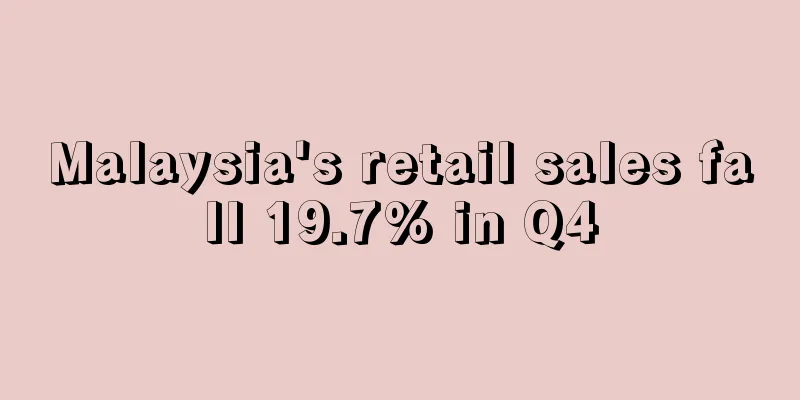The epidemic, inflation, and supply chain disruptions caused the decline in US retail spending to exceed expectations

|
Americans' retail spending fell more than expected in July, with sales in many industries falling month-on-month.
According to the National Retail Federation ( NRF), U.S. retail sales in July fell 1.1% from June to $617.7 billion, but increased 9.5% compared with July 2020. Economists had expected retail sales to fall 0.2% month-on-month in July.
On a monthly basis, retail sales in July fell in all categories except electronics/appliances and health/personal care.
Among them, clothing and clothing accessories decreased by 2.6% month-on-month , but increased by 45.8% year-on-year; electronics and electrical appliances increased by 0.3% month-on-month and increased by 23.4% year-on-year; furniture and household goods decreased by 0.6% month-on-month, but increased by 15.6% year-on-year; sporting goods decreased by 1.9% month-on-month, but increased by 14.5% year-on-year; groceries decreased by 0.1% month-on-month, but increased by 12.4% year-on-year; health and personal care products increased by 0.1% month-on-month and increased by 8.4% year-on-year; building materials and gardening products decreased by 1.2% month-on-month, but increased by 5.3% year-on-year; sales of other categories decreased by 3.1% month-on-month, but increased by 3.7% year-on-year.
In the first half of this year, the epidemic eased slightly, and the US government introduced a series of bills to stimulate the economy and consumption (such as the "American Family Plan"), which drove spending increases. Consumer demand began to be released, and retail sales also hit a record high in April 2021.
But retail spending has since fallen as supply chain disruptions left businesses running low on inventory. Shortages of products from semiconductors to lumber have hurt companies’ ability to service Americans’ frenzied spending.
The imbalance in demand has also pushed inflation to its highest level since 2008, which has put more pressure on middle- and low-income families and led to the postponement of a large number of discretionary purchases. The spread of the Delta variant virus has also hit consumer confidence hard.
"The combination of waning U.S. consumer stimulus and the spread of the Delta variant has led to a decline in consumer spending and confidence," said Ian Shepherdson, chief economist at Pantheon Macroeconomics. "However, if the spread of Delta can be contained, the economy will rebound in the fourth quarter." US Market retail epidemic |
<<: Amazon Canada issues announcement to update expired product policy
>>: Russia's e-commerce sales in the first half of the year exceeded US$670 million
Recommend
What is Paynamics? Paynamics Review, Features
<span data-docs-delta="[[20,{"gallery"...
The French beauty market will exceed 2.6 billion euros in 2021, with growth in many categories
According to a survey by the research organizatio...
What is Winlink Technology? Winlink Technology Review, Features
Yinglingtong Technology (Guangzhou Yingling Inform...
What is Slickdeals
Slickdeals , referred to as SD, is the largest pr...
What is Hungry Harvest? Hungry Harvest Review, Features
Hungry Harvest is a subscription produce brand th...
Strict crackdown during peak season! A large number of Amazon sellers received warning letters
Amazon sellers who don’t fake orders are waiting ...
11,000 units sold in a single week, many items became popular on TikTok
It is June now and the heat is unbearable. Europe...
Shopee and BNI join hands to open up export paths for Indonesian SMEs
Recently, according to foreign media reports, e-c...
TikTok's Malaysian sellers' revenue achieved a breakthrough, increasing by nearly half in the second quarter
Although TikTok is well-known at home and abroad ...
The new product earned $2 million on the first day, and the dark horse in the track is running wildly
The red ocean field has spawned many dark horses ...
With over 20 million USD sales overseas, it may become the next SHEIN
In recent years, more and more fast fashion brand...
What is puli2000? puli2000 Review, Features
Established in the year 2000, puli2000 is a priva...
Non-compliant listings will be deleted! Amazon has included geographical indications in its intellectual property policy
With the development of economy, more and more pe...
BigCommerce and Walmart reach new partnership to get 120 million visits per month for free
According to techcrunch, SaaS website building pl...
What is Fengdian Cross-border? Fengdian Cross-border Review, Features
Fengdian Cross-border is committed to developing ...









